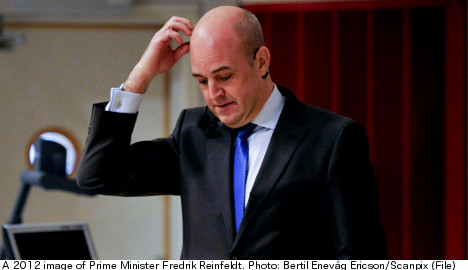Together, the Social Democrats, Left Party, and the Greens have the support of 50.5 percent of the Swedish electorate, according to Statistics Sweden’s (SCB) latest Political Party Preference Survey.
The four parties of the centre-right Alliance coalition government – the Centre Party, Liberal Party (Folkpartiet), Moderates, and the Christian Democrats – command a combined 40.7 percent of voter support.
Support for the Moderate Party now stands at 26.9 percent, marking the biggest drop in support among the parties since the previous survey in November 2012, when the party had support of 28.1 percent of the electorate.
Since the 2010 elections, the Moderates have seen their support wane by 4.2 percentage points, while support for the Social Democrats has climbed 4.9 percentage points to 35.6 percent during the same period.
The Green Party’s 8.5 percent of voter support makes it Sweden’s third largest political party, according to latest Political Party Preference Survey, followed by the Sweden Democrats (7.7 percent), the Left Party (6.4 percent) and the Liberals (6.0 percent).
The Christian Democrats, meanwhile, failed to reverse their downward trend in the opinion polls, dropping an additional 0.2 percentage points to 3.6 percent, below the four-percent threshold required for parliamentary representation.
Support for the Centre Party also dropped by 0.2 percentage points, but the party nevertheless registered support of 4.2 percent of voters, enough to maintain its place in parliament.
Carried out twice a year, the Statistics Sweden Political Party Preference Survey is based on a much larger survey sample, roughly 9,000 people, than the more frequent polls carried out by public opinion research firms.
The Party Preference Survey in May 2013 was conducted by telephone interviews with a national random sample of 9,059 people who are of voting age.
Participants in the survey are asked which party they would vote for if an election were to be held in the coming days.
The Local/dl




 Please whitelist us to continue reading.
Please whitelist us to continue reading.
Member comments